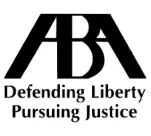ERISA Fiduciaries


Empowering fiduciaries to navigate the complexities of ERISA regulations!
Schedule a consultation







By definition, an Employee Retirement Income Security Act (ERISA) fiduciary is anyone who exercises discretionary authority or control over a defined benefit or defined contribution plan or its assets, or who gives investment advice to a plan or its participants.
There are certain transactions prohibited by law that involve self-dealing or conflicts of interest harmful to the plan. However, there are also a number of exemptions under the law, and the Department of Labor (DOL) grants some of these additional exemptions as long as protections for the plan are in place. But with professional ERISA fiduciary legal services from My RIA Lawyer, we can help ensure you remain compliant with all applicable laws and regulations.
As plan sponsors, you will need to navigate the numerous rules, regulations, and standards of ERISA to meet your fiduciary obligations. We will guide you through the complexities of ERISA and DOL requirements, fidelity bonding, creating Investment Policy Statements and spelling out the differences between prudently carrying out your responsibilities either as a 3(21) advisor or a 3(38) advisor.
The DOL, through regulation, defines the term “investment advice” for purposes of determining what activities are fiduciary for purposes of ERISA and the Internal Revenue Code (IRC). The impact of changes to this definition are significant as financial institutions, which meet the new definition, will become subject to the prohibited transaction rules when serving employer-sponsored plans and IRAs, among other types of “retirement investors.” And that’s just the start of it. Give My RIA Lawyer a call today to speak with an ERISA fiduciary legal services specialist who can walk you through our complete process.
With our ERISA fiduciary legal services, we aim to explain this and other regulations in plain English terms, discuss the steps being taken by financial institutions to comply with the changing requirements, and provide you with actionable takeaways to help shape your strategies.

as a lawyer, I can give you the insights...
We are the answer to All Your Questions.
“It’s important that you look at your legal provider and who it is you have invested in to protect your business, so there are a few things you should be asking your lawyer. First, do they know what the heck you’re doing? Do they know the services you provide? The fees you’re charging? Do they understand securities? One of the problems I see when there is a legal action or when there’s an enforcement action, is that so many of you are going to attorneys that have ZERO securities experience! You’re going to, God forbid, a general practitioner!! That’s not the kind of lawyer you want, you want a securities attorney! You want them to understand your business.“
— Leila Shaver Founder
Take This Seriously...
The Most Rewarding Part O...
Compliance Is Sexy...
Stop Compliance Headaches Forever...
Regulate THIS!...